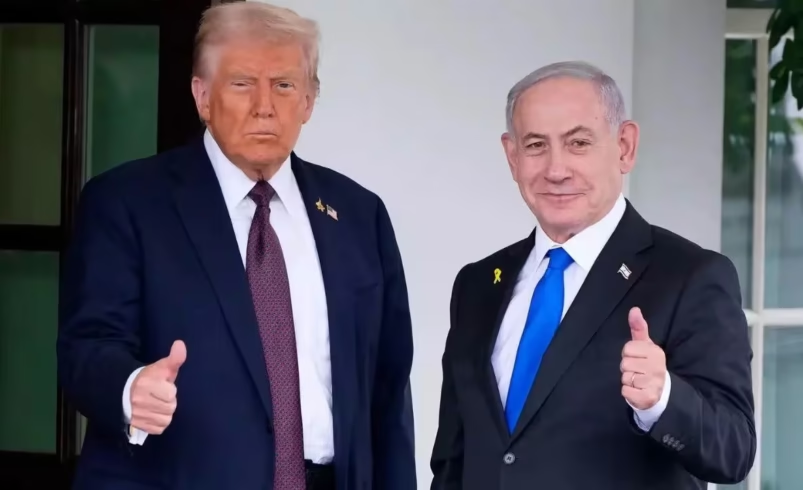Trump reportedly urged Netanyahu to accept Gaza peace deal amid ongoing conflict
- October 7, 2025
- 0

U.S. President Donald Trump reportedly encouraged Israeli Prime Minister Benjamin Netanyahu to view a potential ceasefire proposal with Hamas as an opportunity rather than a setback. According to reports, Trump expressed frustration with what he perceived as Netanyahu’s reluctance to move forward toward ending the prolonged violence in Gaza.
Trump has been urging both Israel and Hamas to finalize an agreement that could bring an end to the two-year conflict that has left Gaza in devastation. During a recent call, he reportedly celebrated signs that Hamas might be willing to release hostages, describing the development as a positive step toward peace.
In the reported conversation, Trump is said to have told Netanyahu that any progress should be seen as a “win.” He emphasized that accepting even partial concessions could create momentum for broader stability in the region. His remarks were described as a rebuke of what he viewed as Netanyahu’s overly cautious or negative stance on the negotiations.
The apparent willingness of Hamas to release hostages has been interpreted by some observers as a potential turning point in efforts to de-escalate tensions. Trump reportedly highlighted this gesture as evidence that dialogue could yield tangible results if both sides were willing to compromise. He urged Israel’s leadership not to dismiss the opportunity for progress, suggesting that even incremental steps could pave the way for lasting calm.
While diplomatic discussions continue, Israeli forces remain positioned defensively in and around Gaza City. Airstrikes have persisted amid ongoing security concerns, underscoring the fragile nature of the situation on the ground. The continued military activity reflects both sides’ deep mistrust and the difficulty of achieving a sustainable ceasefire despite international calls for restraint.
Trump’s reported remarks highlight his impatience with what he perceives as stagnation in peace efforts between Israel and Hamas. His message appears aimed at breaking through political hesitation and encouraging decisive action toward ending hostilities that have caused widespread humanitarian suffering in Gaza over two years of conflict.
The reported exchange underscores how external voices continue to influence Middle East diplomacy, even when direct negotiations face obstacles. Whether such pressure will translate into concrete progress remains uncertain, but it reflects ongoing global concern over the toll of violence on civilians and regional stability. As airstrikes persist and defensive operations continue, hopes for an enduring peace hinge on both sides’ willingness to seize opportunities for dialogue when they arise.